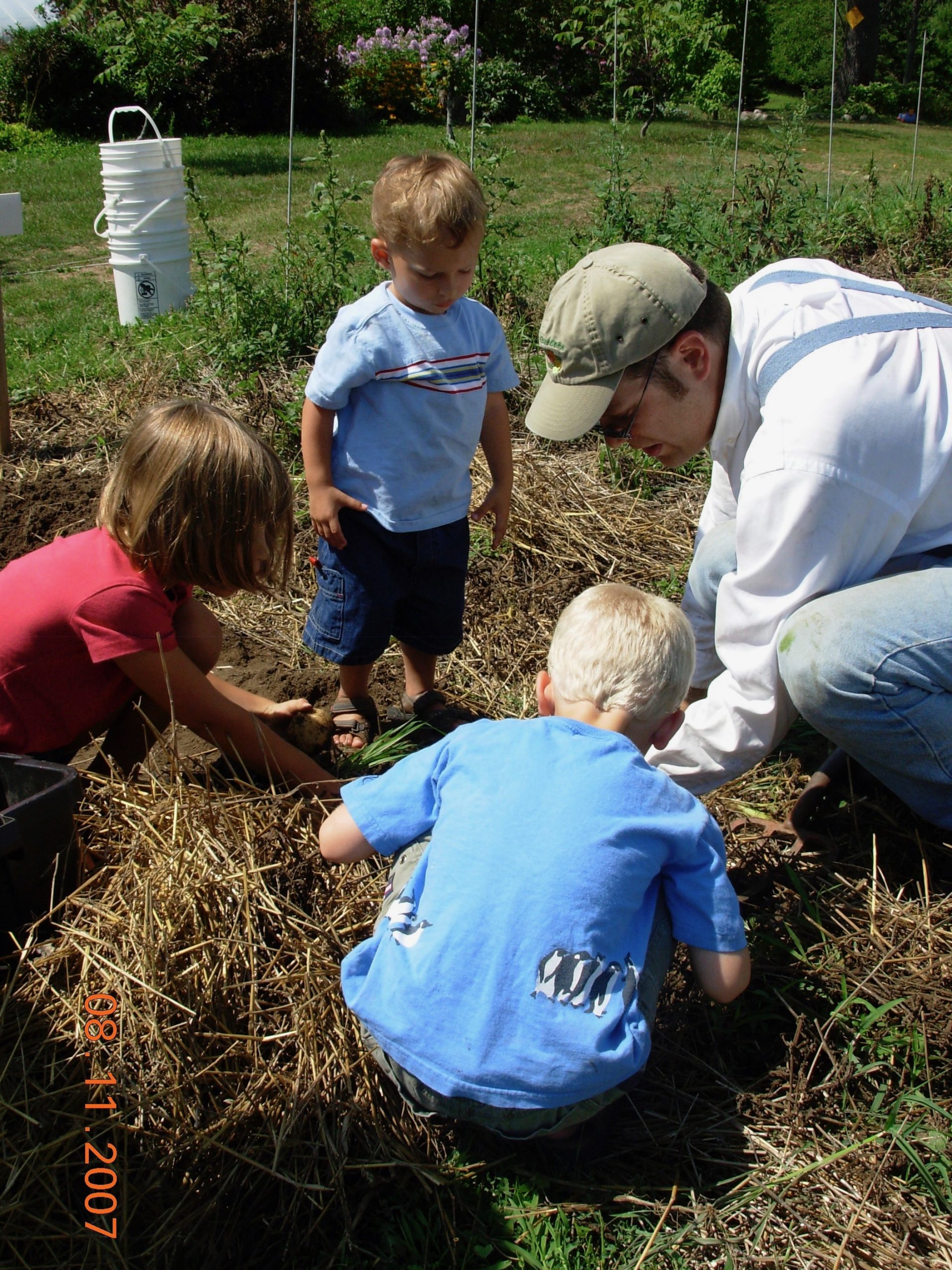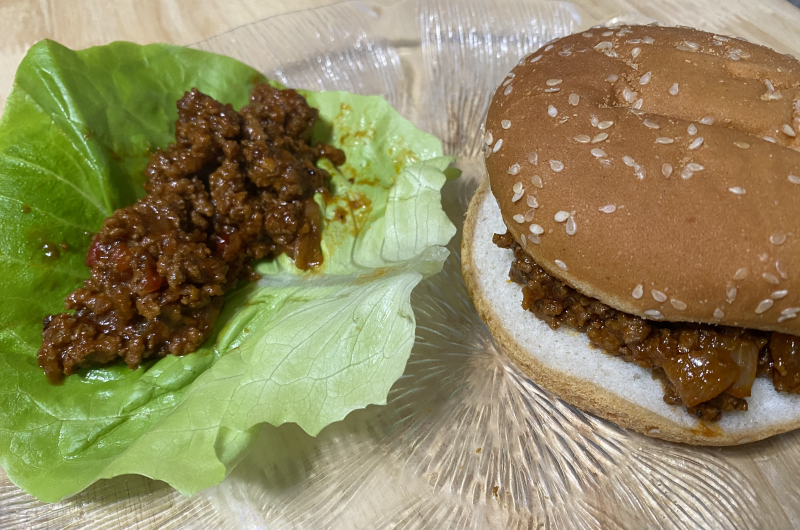Local food procurement has been on my radar for most of my life. I grew up in a home where we belonged to an organic food co-op and we had a large garden. I can remember trips to a local farm where we got manure. Every year, we trailered a load of it home to till into the garden for fertilizer. Growing up, every Saturday I would go to the Farmers’ Market with my dad. Even now, we try to meet at the market on Saturday mornings. We cooked all types of cuisine at home. I learned that the best food comes from using high-quality, fresh ingredients. Cooking and baking gluten-free is no different, the better quality ingredients, the better the end product.
Joining a CSA
When I got married and had kids, I wanted to be able to garden. I wanted to give them those experiences, like I had growing up. Our first house did not have the space to do a garden. I found a local farm that worked on a community subscription basis referred to as Community Supported Agriculture. The farm was Rocky Gardens. We joined it in 2003 and belonged to it for 10 years.
The only reason we didn’t remain with Rocky Gardens is that the owners retired and moved out of the country. It was a wonderful experience. We paid an annual fee to belong to the CSA. The CSA had work requirements each month of the planting/growing season. In return, every week for 20 weeks during the growing season, we received a bounty of produce. It was immensely satisfying to belong to Rocky Gardens and we miss it dearly. We made many friends there over the years, many we still keep in touch with.
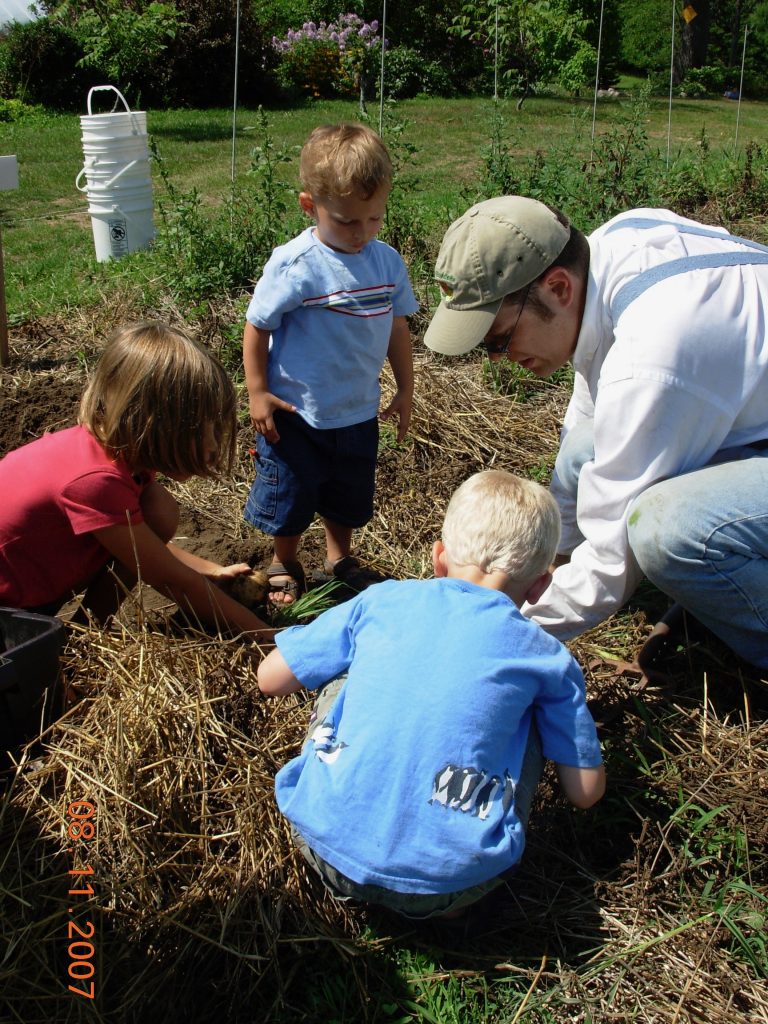
HTN/WAPF
I learned a lot about the local food movement and about gardening from belonging to this CSA community. For instance, one organization that I learned about when we first joined the farm was Healthy Traditions Network (HTN), the Metro Detroit Chapter of the Weston A. Price Foundation (WAPF). I started out by going to a festival they organized. Once I went to the festival, I was so impressed with their work that I then started volunteering on their leadership team. I ended up being the Leadership Team Chapter Director for several years. After a couple of years hiatus from volunteering, I started helping with HTN again, last year.
I often help teach classes on food preparation, local food systems and procurement, and assist at events. Healthy Traditions Network/The Weston A. Price Foundation’s purpose is to help source local foods and bring knowledge about eating a healthy diet and living a healthy lifestyle based on the work of Dr. Weston A. Price. Dr. Weston A. Price was an American biological dentist who studied many different cultures and published his findings on their health, lifestyle and diet in the 1930’s.
Buying Local Food
My family has been purchasing local foods or growing our own, for nearly two decades. We get all our poultry, our beef, lamb, honey, maple syrup, eggs, milk, berries, and many other things from local farmers. It is wonderful. I love getting top-notch products from people I have developed a relationship with, helping keep food dollars in my own community, and supporting environmentally sustainable farming practices.
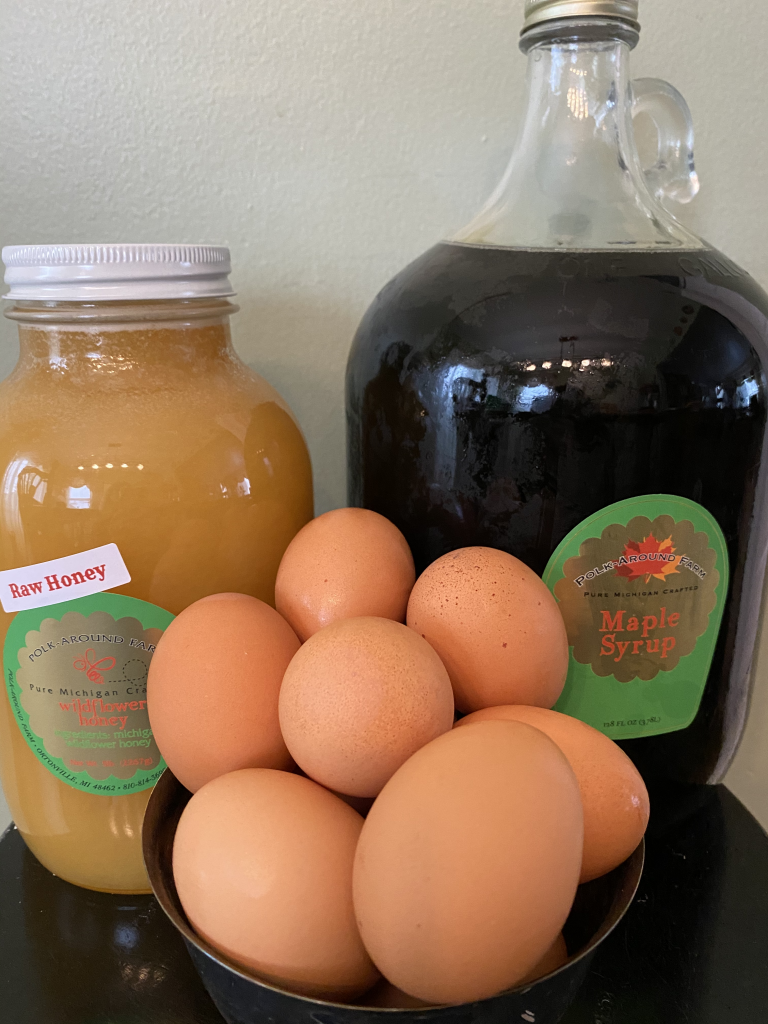
Sourcing local food
A good way to find a list of resources in your area is to contact your local Weston A. Price Foundation chapter. They have a list of local farms for various products and can help you with contact information. The chapters are listed on the WAPF website. I also highly recommend getting an annual membership to the WAPF, as it includes their quarterly journal which is chock full of interesting articles, recipes and information. WAPF also sends out an annual shopping guide that can be helpful.
Another way to source local food is to ask on your local social media groups/pages. Farmers’ Markets are a wonderful way to find local growers and producers. You can also see if your local area has a farmers’ market organization that will list all the state or area markets. The one I use for Michigan is Michigan Farmers Market Association.
I have found that a good way to find local Community Supported Agriculture Farms and other farms is on www.localharvest.org. You can find farms for things like meat, dairy and eggs on www.eatwild.com.
Azure Standard Buying Club
I also belong to a buying club for Azure Standard. It isn’t necessarily local foods for me, but they carry all natural foods and other things at usually cheaper prices than I can find in stores. I like to order my Gluten-Free Oats, flours and other baking items from them in bulk. All ordering is on Azure’s website and then it is a once a month drop point, where you go to the drop site to meet the truck and get your items. The Azure Standard website will allow you to see if there are any local drops near you , or start your own drop. I have found during the spring they carry seeds and live plants that were wonderful, as well as other gardening supplies. They carry supplements and health and beauty items too.
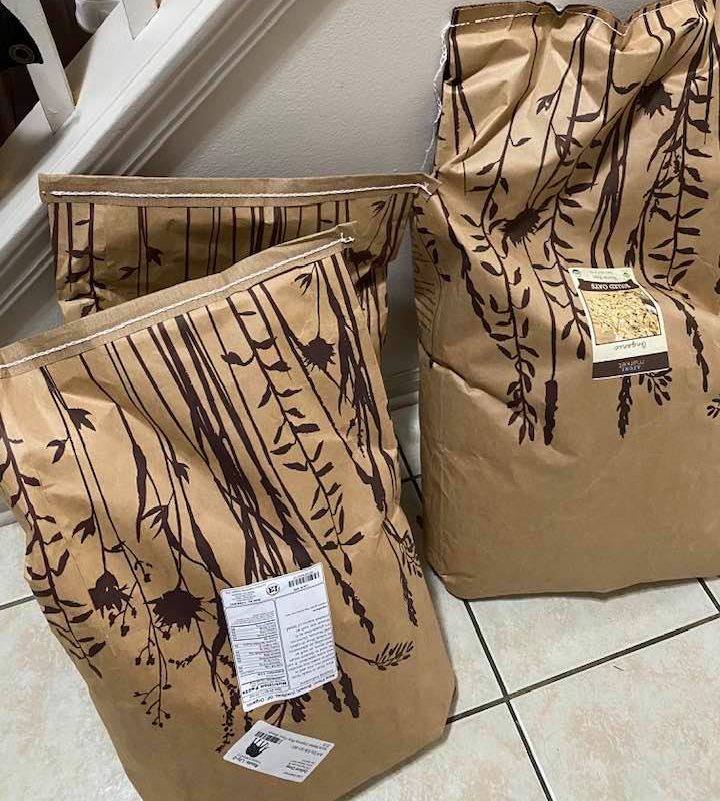
Freezer Meat
I love having meat in my freezer, it was extremely helpful during the beginning stages of the Pandemic when there were shortages of so many things. We had our food for the year ordered, and we had our list of farmers to contact when we needed things like eggs, honey, maple syrup, etc.
We are a family of six, we have an adult child that lives at home, two teenagers and a pre-teen. Three of those children are boys. Let me tell you, they can eat massive quantities. We also often have my dad over to eat, he is lonely since my mom died, and we love having him stop by for a warm meal and to visit.
Our family ordered an entire cow worth of freezer beef this year. Each year we get 80 chickens, two turkeys, and two lambs. All this is from local farmers, ready for our freezer. This year, we also ordered half a goat from our local county fair 4-H large animal auction (we split the goat with a friend, so we could try it).
We do have to pre-order. We usually hear from the farmers in the winter around February/March and place our annual orders. So you need to plan ahead if you want to order in quantities as freezer meat (which we find the least expensive way to go).
Buying In-Season Local Food
I also try to buy things in season to put up for the year. We went strawberry picking in June. I froze some of the berries and made the rest into jam. I picked blueberries too, most were made into jams and a few were frozen. We get apples from a local, organic apple orchard every fall. We make apple sauce and can it or freeze it. I made a bunch of apple butter last year with some of the apples too. We try to preserve as much as we can from our garden. as well.
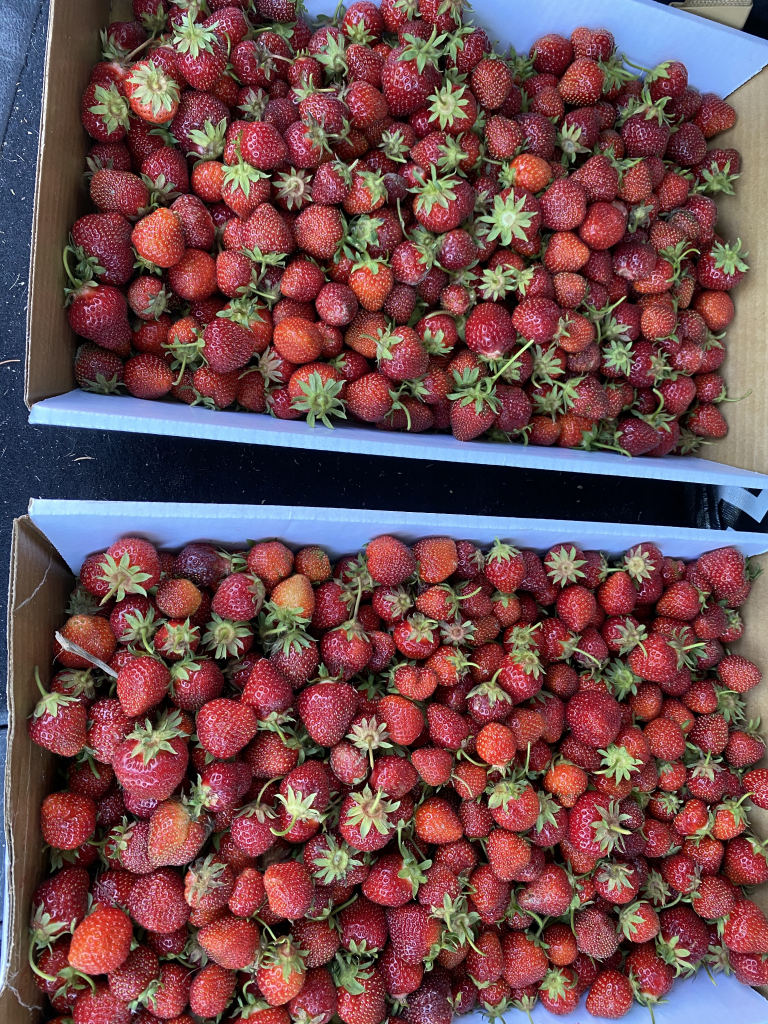
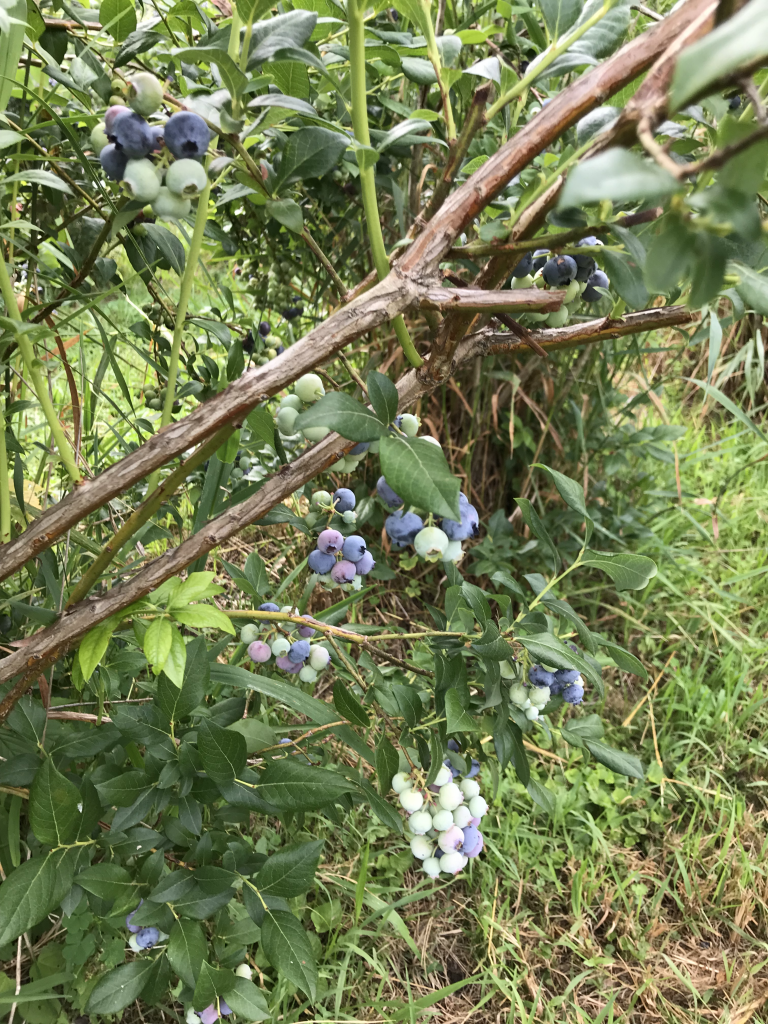
Sourcing foods from local growers is rewarding in so many ways. It is healthier for you, the environment and your community. Food dollars you spend locally stay in your community more than double the amount of those that you spend at the supermarket. The foods you buy locally are picked at the peak of freshness. Therefore, they retain more nutrients than those that must be shipped in from far away. The foods you buy locally have less food miles on them, which is a savings in fossil fuel and energy to get it to your table. There are so many wonderful reasons to buy local!
Recipe
Diane Franklin, who was the owner of Rocky Gardens CSA, has given me permission to share this recipe from the CSA. This Sloppy Joe recipe is easy to make and delicious. This is a family favorite, and I hope you like it as much as we do!
Sloppy Joe
Course: Main, BeefCuisine: AmericanDifficulty: Easy4
servings5
minutes25
minutesIngredients
1 pound grass-fed ground beef
1/2 cup diced onion
1/2 cup diced bell pepper
1 clove garlic, minced
1/2 cup organic tomato ketchup
1 dash ground allspice
1 Tablespoon Molasses
1/2 Tablespoon honey
1 Tablespoon yellow mustard
1/2 teaspoon gluten-free tamari soy sauce
Directions
- Saute garlic, onion and peppers till soft over medium heat.
- Add ground beef and cook, breaking up meat, till browned and no pink remains.
- Drain any extra fat, if necessary
- Add ketchup, stirring until you get the right consistency for sloppy joe. Add all the other ingredients to taste.
- Allow to cook another minute or so to meld the flavors.
- Serve on a bun or plain.
Notes
- This recipe is very forgiving and you should add all the ingredients to taste.

